Journal Boards
Founding Editor
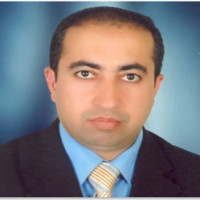
Mehmet BULUT received his Ph.D. in Electrical Engineering from Yildiz Technical University, Istanbul, in 2001. He started his career in 1993 as a Research Assistant at Dumlupınar University, Department of Electrical and Electronics Engineering.
In 1998 and started working as an Automation Engineer (I&C) at Eti Gümüş A.Ş. General Directorate. He took part in the SCADA+PLC conversion studies of the company's control system. He transferred to Electricity Generation Inc. in 2003., He served as Manager of Gölbaşı Technical Control and Laboratories affiliated to the Thermal Power Plants Department in 2007 and as R&D Director between 2008-2013. He served as the coordinator of the “Establishment of Maintenance Management System (BYS) in Thermal Power Plants” project carried out within the R&D Directorate. In 2013, he was appointed as the Head of the newly established Nuclear Power Plants Department During his duty as the Head, he attended the “Leadership and Management for Nuclear Power Programmes” training course organized by the International Atomic Energy Agency (IAEA) within the Argonne National Laboratory (ANL) in the USA in 2013. He was appointed as the Advisor to the General Directorate of EÜAŞ in 2015.
He received the Industrial Energy Manager certificate at the end of the course he attended at the EIE (Electrical Affairs Surveying Administration) in 2010. He received EU Basic Training and EU Specialization Training from Ankara University, European Communities Research and Application Center (ATAUM) in 2005 and 2006.
He served as a Member of the Advisory Board (DK) within the TUBITAK-TEYDEB Electrical-Electronic Technologies Group (ELOTEG) between 2019-2022.
He is part-time lecturer at the Electrical-Electronics Engineering and Aircraft Electrical-Electronics Departments of Atılım University.
He is the founding editor of the academic journal “Journal of Science, Technology and Engineering Research (JSTER)” published twice a year on the Dergipark platform.
Advisory Board

Ali Kara received his Ph.D. in Electrical and Electronics Engineering from Hacettepe University, Ankara, in 2002. He was a research assistant/scholar at Polytechnic University (New York University, Brooklyn, NY) from 1999 to 2000, in an industry-sponsored project (Symbol Technologies/Motorola).
In 2000, he joined the Department of Electrical and Electronics Engineering at Atılım University, where he held various positions from lecturer to full professor. He was the Director of the Graduate School of Natural and Applied Sciences at Atılım University until 2021.
He was also a consultant and chief researcher (part-time) at TUBITAK BILGEM from 2006 to 2012, where he contributed to some nationwide defense and security projects. He has been actively involved in many state and industry-funded projects since then.
Dr. Kara has published extensively in journals, mostly with his graduate students, and has presented his research findings at relevant conferences. He has also led many research projects in the areas of electromagnetics, wireless communications, radar and electronic warfare systems, and engineering education.
In one project, he led a team of researchers from universities across Europe to develop a Virtual and Remote Laboratory (VRL) platform (ERRL-European Remote Radio Laboratory). This platform was unique at the time and was fully funded by the European Commission. Dr. Kara has five patents to his name.
His research interests lie in a broad range of areas, including wireless communications, electromagnetics, radar and electronic warfare, data-driven techniques in engineering, and engineering education. In recent years, he has focused on the use of artificial intelligence (ML/DL) to solve problems in these areas.
See Ali Kara's Google profile for research publications.
See Ali Kara's Youtube Channel for some of the course recordings.
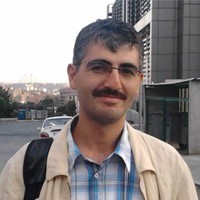
Dr. Ayhan Istanbullu received his undergraduate degree (1993) and his Ph.D from the Electronic and Computer Science Education Department of the Gazi University (2003), Turkey. He worked as an instructor at the University of Mugla, in the Department of Electronic and Computer Science Education between 2001 and 2006.. He currently works as an Professor in Computer Engineering Department of Balikesir University, Turkey. ,He has participated in European Remote Radio Laboratory project (EU LdV) and he has acted as project partner (2006-2008). His current research interests include the investigation of information technologies.
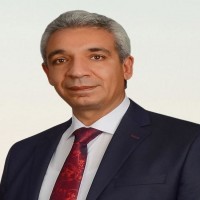
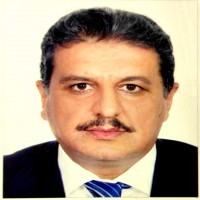


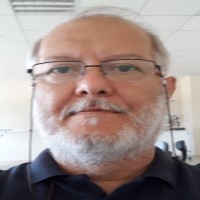
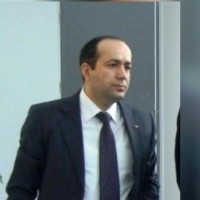
Editors / Field Editors

I obtained my B.Sc. Medical Laboratory Technology from the Faculty of Allied Health Sciences, Kuwait University. I then went on to obtain my M.Sc in Medical Microbiology (Molecular Biology) at the Department of Microbiology, Faculty of Medicine, Kuwait University. I pursued doctoral studies by conducting research in the field of immunology of recurrent miscarriage and received my Ph.D. Biological Sciences (Immunology) from the Department of Biological Sciences, University of Warwick, Coventry, United Kingdom.
My teaching and research experience started at the Department of Microbiology, Faculty of Medicine, Kuwait University from 1994-2010. I joined Gulf University for Science and Technology in the Fall semester of 2010-2024. Currently working as a Full Professor of Biology at Abdullah Al Salem University, Kuwait.
My research area is in Immunology with a special focus on the role of Cytokines in Health and Disease. My main interest is in the roles of cytokines in different complications of pregnancy such as Recurrent Spontaneous Miscarriage, Preeclampsia, Intra-uterine Growth Restriction, and Preterm delivery. I am also involved in immunological studies of other conditions such as Multiple Sclerosis, Dengue Fever, Rheumatoid Arthritis, Hemoglobinopathies, and Cytomegalovirus infections. My current research activity is in the cytokine balance in Asthma and Bone Diseases (Osteoimmunology).
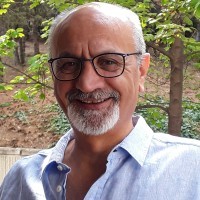





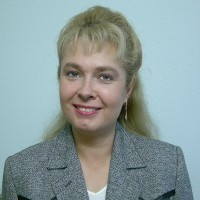

Dr. Uneb Gazder is an Assistant Professor in the Department of Civil Engineering at University of Bahrain. He finished his BSc (Civil) and ME (Engineering Management) from NED University of Engineering and Technology in 2005 and 2008, respectively. He completed his PhD from King Fahd University of Petroleum and Minerals in 2014. He has a specialization in Transportation Planning. His areas of interest include traffic prediction, modeling traveler behavior, traffic safety and pavement materials.

Ali Kara received his Ph.D. in Electrical and Electronics Engineering from Hacettepe University, Ankara, in 2002. He was a research assistant/scholar at Polytechnic University (New York University, Brooklyn, NY) from 1999 to 2000, in an industry-sponsored project (Symbol Technologies/Motorola).
In 2000, he joined the Department of Electrical and Electronics Engineering at Atılım University, where he held various positions from lecturer to full professor. He was the Director of the Graduate School of Natural and Applied Sciences at Atılım University until 2021.
He was also a consultant and chief researcher (part-time) at TUBITAK BILGEM from 2006 to 2012, where he contributed to some nationwide defense and security projects. He has been actively involved in many state and industry-funded projects since then.
Dr. Kara has published extensively in journals, mostly with his graduate students, and has presented his research findings at relevant conferences. He has also led many research projects in the areas of electromagnetics, wireless communications, radar and electronic warfare systems, and engineering education.
In one project, he led a team of researchers from universities across Europe to develop a Virtual and Remote Laboratory (VRL) platform (ERRL-European Remote Radio Laboratory). This platform was unique at the time and was fully funded by the European Commission. Dr. Kara has five patents to his name.
His research interests lie in a broad range of areas, including wireless communications, electromagnetics, radar and electronic warfare, data-driven techniques in engineering, and engineering education. In recent years, he has focused on the use of artificial intelligence (ML/DL) to solve problems in these areas.
See Ali Kara's Google profile for research publications.
See Ali Kara's Youtube Channel for some of the course recordings.


Dr. Ayhan Istanbullu received his undergraduate degree (1993) and his Ph.D from the Electronic and Computer Science Education Department of the Gazi University (2003), Turkey. He worked as an instructor at the University of Mugla, in the Department of Electronic and Computer Science Education between 2001 and 2006.. He currently works as an Professor in Computer Engineering Department of Balikesir University, Turkey. ,He has participated in European Remote Radio Laboratory project (EU LdV) and he has acted as project partner (2006-2008). His current research interests include the investigation of information technologies.


 Web
Web
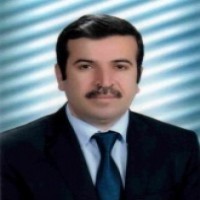
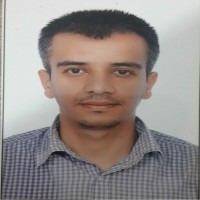
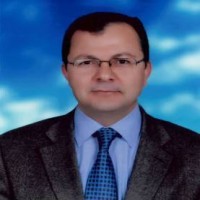
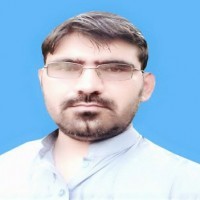
Associate Prof. Dr. Hijaz Ahmad completed his MS in computational mathematics from the Department of Mathematics, COMSATS University Islamabad, Wah Campus. In 2022, he completed his PhD in Computational and Applied Mathematics from the Department of Basic Sciences and Islamiat, University of Engineering and Technology Peshawar, Pakistan and then he started his Post-doc from Lebanese American University, Beirut, Lebanon. His research work is focused on the development and advancement of numerical techniques for finding the numerical solution of mathematical models in the form of partial differential equations and fractional partial differential equations arising in finance, computational biology, and different disciplines of engineering. He has introduced modified variational iteration algorithm-I and modified variational iteration algorithm-II for the numerical solution of nonlinear partial differential equations and fractional iteration algorithm-I for finding the numerical solution of nonlinear non-integer order partial differential equations. The scope of his research is quite broad, covering numerical analysis, fractional calculus, mathematical biology and mathematical physics. Dr Ahmad is included in the World's Top 2% Scientists 2022, 2023 and 2024 (by Stanford University and Elsevier).

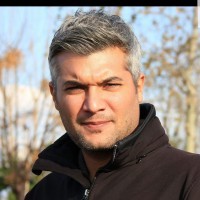


Dr. Ongun Yucesan is currently with the Atılım University Civil Aviation School Avionics department as department chair. He is the graduate of Baskent University in 2000 with BSc EE degree, as well as, Bilkent University MSc EE degree in 2003. He took PhD level courses at University of Missouri Kansas City during years 2003 and 2004. Later on, received PhD degree at the Atılım University MODES program in year 2021. He had time in hands on experience for telecommunication and defense industries arena in the mean time.

